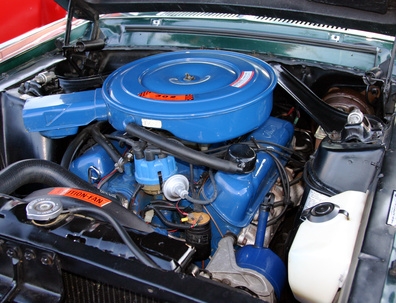
In order to keep an engine running in tip-top shape, it is important to keep it from overheating. Check the coolant level on a regular basis, and be sure the radiator is free of leaks.
An overheated engine can result in a cracked or blown head gasket. The head gasket separates the cylinder head and the blocks. If this gasket is cracked, it will allow water to seep into the cyclinders, possibly leading to breaks in the starter and flywheel.
When an engine overheats, hot spots develop in the combustion chamber. These hot spots can literally ignite the fuel and can also result in holes burnt through the top of the pistons.
If an engine overheats to the point of boiling, the end result can be a burst radiator or hoses due to the buildup of pressure. Older equipment is more susceptible to this consequence.
The most detrimental effect of an overheated automobile is engine seize. A seized engine, in many cases, will require a complete rebuild, which is extremely costly and time-consuming, or replacing the engine with a new or used one.